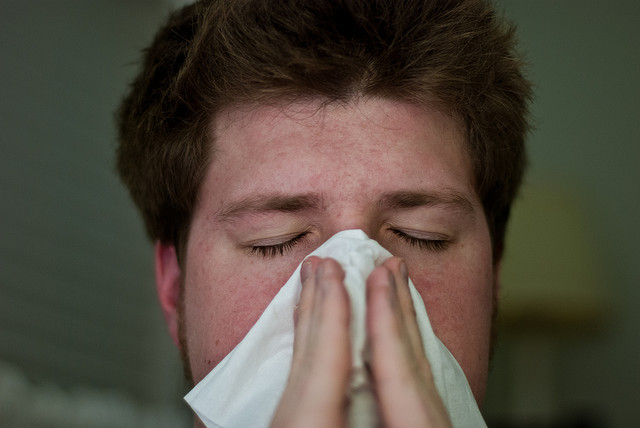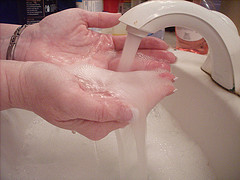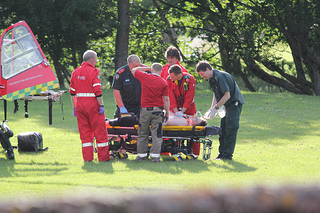You may have been hearing a lot in the news lately about a disease called the coronavirus that has been cropping up around the world. The new coronavirus, which experts recently named MERS-CoV or Middle East Respiratory Syndrome Coronavirus, first emerged in Saudi Arabia in the Spring of 2012. Since then, it has spread to several countries in the area, as well as Europe and North Africa. According to WHO, there has been a total of 94 laboratory-confirmed cases of infection with MERS-CoV, including 46 deaths. And while WHO has recently confirmed that MERS-CoV is not a public health emergency at this time, it’s smart to brush up on the facts, especially if you’re planning international travel anytime soon. Here’s what you need to know about MERS-CoV, including advice for preventing it.
What are Coronaviruses?
 Coronaviruses are actually quite common and most people get them at some point in their lives. There are five coronaviruses that can infect people, usually causing mild to moderate upper-respiratory tract illnesses of short duration. Symptoms may include runny nose, cough, sore throat and fever. One exception is Severe Acute Respiratory Syndrome (SARS), a viral respiratory illness caused by a coronavirus, called SARS-associated Coronavirus (SARS-CoV). SARS was first reported in Asia back in February 2003 and over the next few months, the illness spread to more than two dozen countries in North America, South America, Europe, and Asia. Luckily there have not been any known cases of SARS-CoV infection since 2004.
Coronaviruses are actually quite common and most people get them at some point in their lives. There are five coronaviruses that can infect people, usually causing mild to moderate upper-respiratory tract illnesses of short duration. Symptoms may include runny nose, cough, sore throat and fever. One exception is Severe Acute Respiratory Syndrome (SARS), a viral respiratory illness caused by a coronavirus, called SARS-associated Coronavirus (SARS-CoV). SARS was first reported in Asia back in February 2003 and over the next few months, the illness spread to more than two dozen countries in North America, South America, Europe, and Asia. Luckily there have not been any known cases of SARS-CoV infection since 2004.
What is MERS-CoV?
MERS-CoV is in the same family of viruses as SARS (and even the common cold), but it’s much different. Formerly known as the “novel coronavirus,” or “nCoV”, MERS-CoV is caused by a coronavirus called Middle East Respiratory Syndrome Coronavirus (MERS-CoV). Most of the people infected with the virus to date have developed severe acute respiratory illness and about half have died. Symptoms include fever, cough, and shortness of breath. Unfortunately, health experts are not certain how the disease is caused or how to cure it—they do know that it’s been shown to spread between people (for example, when an infected person coughs or sneezes) who are in close contact.
In which countries have MERS-CoV cases and deaths been reported?
So far, there are no reports of anyone in the United States getting infected with MERS-CoV. According to the CDC, cases have been reported in the countries of France, Italy, Jordan, Qatar, Saudi Arabia, Tunisia, United Kingdom, and United Arab Emirates. Deaths have been reported in France, Jordan, Qatar, Saudi Arabia, United Kingdom and the United Arab Emirates. Of the 90 cases and 45 deaths reported so far, Saudi Arabia tops the list with 70 cases and 38 deaths.
Are there vaccines and treatments for MERS-CoV?
No. The CDC is discussing the possibility of developing a vaccine, but there are no specific treatments for illnesses caused by MERS-CoV at this time. This is why prevention is so important.
How can I protect myself from getting MERS-CoV while traveling?
Protecting yourself from MERS-CoV is similar to preventing the flu and other respiratory illnesses:
- Research MERS-CoV activity in your destination and stay up-to-date with the CDC’s travel health notices. Currently, the CDC does not recommend that anyone change their travel plans because of MERS-CoV. The current notice is a Watch (Level 1) which advises travelers to countries in or near the Arabian Peninsula to follow the standard precautions listed below.
- Stay healthy with balanced nutrition and get enough sleep and exercise–as with any other viral infection, people with weak immune systems are more susceptible to the disease.
 Wash your hands often with soap and water for at least 20 seconds (the time it takes to hum the song “Happy Birthday” from beginning to end twice). If soap and water are not available, use an alcohol-based hand sanitizer that contains at least 60% alcohol.
Wash your hands often with soap and water for at least 20 seconds (the time it takes to hum the song “Happy Birthday” from beginning to end twice). If soap and water are not available, use an alcohol-based hand sanitizer that contains at least 60% alcohol.- Cover your nose and mouth with a tissue when you cough or sneeze then throw the tissue in the trash.
- Avoid touching your eyes, nose, and mouth with unwashed hands.
- Refrain from close contact, such as kissing, sharing cups, or sharing eating utensils, with sick people.
- Clean and disinfect frequently touched surfaces, such airplane trays and hotel room doorknobs.
What should I do if I experience MERS-CoV-like symptoms while traveling or when I return from my trip?
 Seek medical care right away. If you’re traveling more than 50 miles away from home and experience a medical emergency, On Call International can provide you with emergency medical transportation,* including medical evacuation, to any hospital of your choice. Meaning, even if you’re in a state-of-the-art facility in Saudi Arabia, you can still choose to come home to your own doctors for treatment. Our members also have unlimited access to our 24-hour nurse helpline and worldwide medical, dental and pharmacy referrals.
Seek medical care right away. If you’re traveling more than 50 miles away from home and experience a medical emergency, On Call International can provide you with emergency medical transportation,* including medical evacuation, to any hospital of your choice. Meaning, even if you’re in a state-of-the-art facility in Saudi Arabia, you can still choose to come home to your own doctors for treatment. Our members also have unlimited access to our 24-hour nurse helpline and worldwide medical, dental and pharmacy referrals.
Safe Travels!
* If it’s suspected a patient has contracted the MERS-CoV virus, a medical evacuation could be arranged with special isolation equipment. If the patient’s hospital of choice will not accept them, we’ll make every effort to find an adequate facility that does or monitor their care in the initial treatment facility (if adequate) until they are medically cleared for transport.
Photo Credits
Cold from William Brawley
Washing my Hands from Tina M Steele
Preparing Patient for Transport from J.E. McGowan


